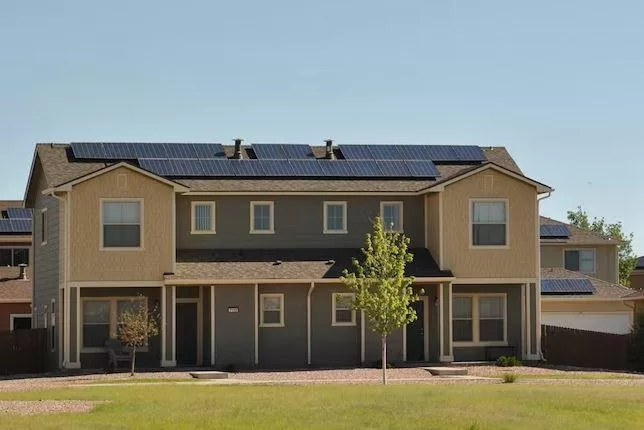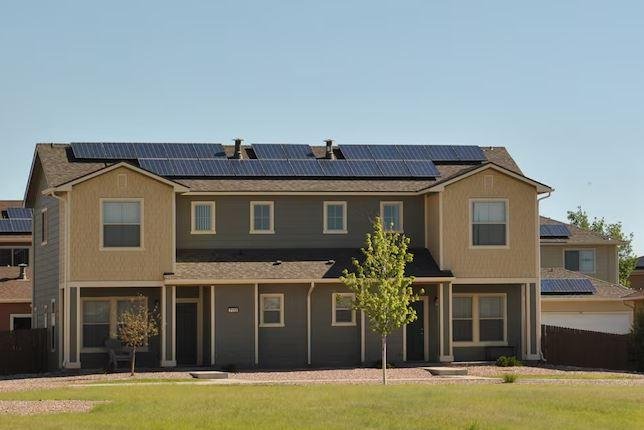Duplex private housing is available at Peterson Air Force Base, Colo. The Department of Defense on Monday announced the launch of a feedback system on privatized military housing, which comes after published reports of deplorable housing conditions at some sites. Photo courtesy Air Force
Aug. 12 (UPI) — The Department of Defense on Monday announced the launch of a feedback system on privatized military housing.
In May, Mother Jones and the Project on Government Oversight detailed fraud and mismanagement by housing companies contracted by the Pentagon. Toxic mold, pest infestations and sewage backups were reported.
The Housing Feedback System is designed to enhance transparency and accountability in the housing, the agency said in a news release.
Ideally, this should allow tenants to receive an expedited response from their privatize landlords.
The system is intended to augment, not replace, existing processes for submitting maintenance work order requests.
“The Department of Defense has a moral obligation to ensure that the spaces where our Service members and their families live are healthy, functional, and resilient,” Deborah G. Rosenblum, acting deputy under secretary of defense for acquisition and sustainment. “This new feedback system is a critical step to ensuring transparent and timely responses to occupants’ concerns and aligns with Secretary [Lloyd] Austin’s priority to Take Care of Our People. We are focused on putting our people’s experiences at the very center of all the work we do.”
The system can be accessed at https://www.dhfs.mil.
The agency provides approximately 250,000 homes for service members and their families.
Johny Dudek described poor conditions to Mother Jones before he left Fort Bliss military base in El Paso, Texas, as an Army sergeant.
“These houses aren’t taken care of — they’re held together with popsicle sticks and bubblegum,” Dudek said. “Because despite our immense military budget, our government has sold off maintaining these homes — taking care of our soldiers and their families — to [companies that do] the minimum amount of work for the maximum amount of profit.”
In 1996, Congress authorized the Military Housing Privatization Initiative to improve the conditions and quality of the housing inventory.
In 2020, the Military Housing Privatization Tenant Bill of Rights was enacted.
Earlier this year, the DOD released its Resilient and Healthy Defense Communities Strategy, “which will guide the department’s actions in the coming years to improve the built and natural environment on defense installations.”
In 2023, the U.S. Government Accountability Office found poor conditions of barracks that house some military service members. The report detailed sewage backups and inoperable fire systems.
“Poor living conditions in these facilities affect service members’ quality of life and undermine readiness and mission,” according to the report’s conclusion. “Improving barracks conditions and addressing the quality-of-life and morale issues associated with poor conditions has multiple facets – including funding, oversight, and collaboration – and addressing these issues will require DOD to take actions in multiple areas.”
The Department of Defense had a backlog of at least $137 billion in deferred maintenance costs as of fiscal year 2020, according to the report.
“This report’s findings are shameful and troubling for the future of our force,” U.S. Sen. Roger Wicker, R-Miss., ranking member of the Senate Armed Services Committee said after the report was issued. “Our service members deserve a safe place to live and work. Failing to provide this basic necessity harms readiness and discourages recruitment and retention.”

